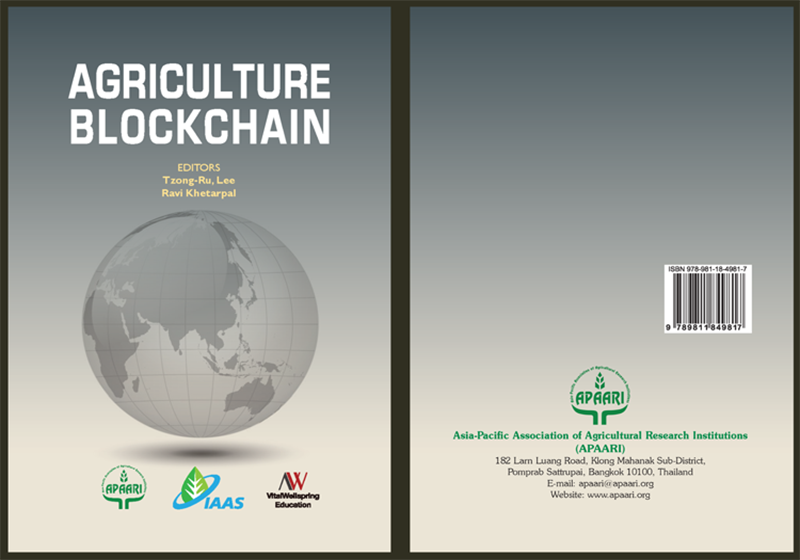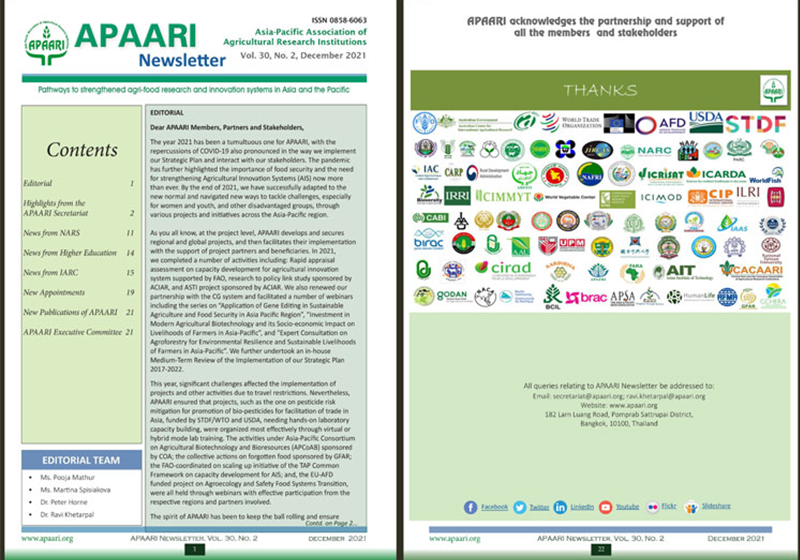APAARI successfully delivers Training of Trainers on Strengthening Agricultural Innovation Systems for Biopesticide Development in Africa through Capacity Enhancement
The Asia-Pacific Association of Agricultural Research Institutions (APAARI) partners with the International Centre for Genetic Engineering and Biotechnology (ICGEB) in Africa to provide technical backstopping on the integration of functional capacities in the Southern African Development Community (SADC) Biopesticide Development Project funded by the Standards and Trade Development Facility (STDF) of the World Trade Organization (WTO).
Based on a similar project in Asia-Pacific coordinated by APAARI, the collaboration is based on the application of the principles of the TAP Common Framework for Agricultural Innovation Systems (CD for AIS). In particular, it is based on recognition that the overall capacity of project stakeholders requires a focus not only on the competencies needed to achieve technical results, but also on what it takes to build more effective and dynamic relationships among multiple actors, who constitute part of the whole agricultural innovation system (AIS) – of which integrated pest management (IPM) is one of the components. Therefore, the combination of both technical and functional capacities is recognised as crucial to achieve long-term project objectives and outcomes.
ICGEB seeks to address the issue of low export market access by SADC countries due to the absence of strategies to ensure compliance with existing standards for maximum residue limit (MRL) of pesticides. While the technical component of the project is crucial to provide the necessary scientific evidence to inform key actors and lead to envisioned changes in the region’s IPM, the project will also address the functional issues of the underlying problems that require a different set of skills. Such soft skills – functional capacities – of the project stakeholders need to be built to enable them to better: (i) promote the use of biopesticides to ensure compliance with export markets’ residue requirements; (ii) develop common standards based on reciprocal acceptance of data generated, evaluated and used for decision making; and (iii) mitigate residues to resolve specific MRL trade concerns.
To embed and mainstream functional capacity development in the project activities, APAARI and ICGEB organized a training of trainers (ToT) on ‘Strengthening Agricultural Innovation Systems for Biopesticide Development in Africa through Capacity Enhancement’ from 9-10 March 2022.
The ToT trained selected project actors to integrate the AIS thinking in the project activities, and facilitate the blending of technical and functional capacity development to better support the project objectives. The training specifically aimed to build the capacity of the trainees to:
- Apply the AIS perspective to improve the understanding and importance of the blending of technical and functional capacities in biopesticide development in Africa.
- Analyse and prioritize the functional capacity needs collected through the project KM/CD survey.
- Analyse actors involved in biopesticide development in Africa.
- Analyse case studies on biopesticides to determine technical and functional factors of success.
- Learn innovative knowledge-sharing and learning processes based on the principles of adults learning.
- Develop an action plan based on existing project activity timelines and agree what and how the identified prioritized functional capacities will be integrated.
The training participants included various managers, administrators and directors of pesticide management programmes and regulatory affairs in SADC, who are expected to facilitate the blending of technical and functional capacities within the project, with technical backstopping and guidance from APAARI. The training was delivered by Ms. Martina Spisiakova, Knowledge Management Coordinator, and Dr. Sasireka Rajendran, Project Manager, APAARI.



